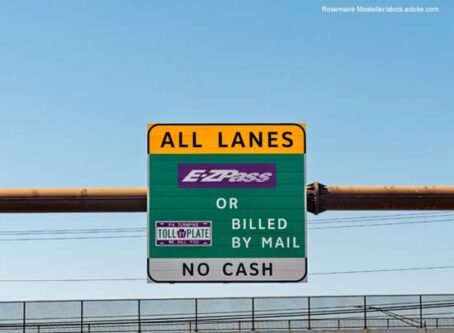Ticket quotas are the topic of bills at four statehouses
Lawmakers in several states are taking up the pursuit of legislation that is intended to put an end to practices that force law enforcement officers to participate in ticket quotas.
Communities across the country are able to generate revenue from different types of fines. In certain locales, fines account for a disproportionate amount of local revenues. These municipalities are known for being speed traps.
The National Motorists Association has said that “a speed trap exists wherever traffic enforcement is focused on extracting revenue from drivers instead of improving safety.”
At least 23 states have acted to discourage practices that pressure law enforcement officers to write tickets. Most recently, Alabama and Virginia added new laws to address concerns about practices that force law enforcement officers to partake in ticket quotas.
Arizona
Pursuit at the Arizona statehouse again is intended to address concern about overzealous enforcement policies.
In 2015, then-Gov. Doug Ducey vetoed a bill that was intended to quash police ticket quotas.
The bill called for prohibiting law enforcement agencies at the local, county and state levels from requiring officers to issue a certain number of citations within a specific period of time. Departments would have been prohibited from using the number of citations written by officers to determine rank.
Ducey said in his veto message he was concerned the bill would prevent police chiefs from “objectively gauging performance in their departments.”
The latest pursuit again takes up protection for law enforcement officers at the local, county and state levels.
HB2179 awaits assignment to committee in the House.
Maryland
In Maryland, a House bill again addresses concerns about quotas.
Maryland law permits law enforcement agencies to use the number of arrests made or citations issued by an officer as criteria for promotion, demotion, dismissal or transfer.
Sponsored by Del. Robin Grammer, R-Baltimore, HB6 would repeal that authorization. Law enforcement agencies also would be forbidden from requesting or directing an officer to issue more citations or arrests.
As recently as one year ago, the Maryland State Police shared concerns with lawmakers about the legislation.
State troopers said the legislation prevents a police agency from taking any action against an officer for failure to perform basic law enforcement duties.
The Maryland Attorney General’s office has said that “quotas damage the public’s trust in law enforcement, which is crucial to effective policing.”
This year’s bill is in the House Judiciary Committee.
New York
Two New York bills seek to address potential abuses.
The Empire State already prohibits an employer from transferring or penalizing a police officer for failure to meet an established ticket quota.
Figures previously compiled by Governing magazine show there are 34 localities in New York where fines and forfeitures account for more than 10% of general revenue fund revenues. There are 12 localities that collect more than 20%. Another five receive more than 30%.
Sen. Michael Gianaris, D-Queens, describes his bill as strengthening the quota penalty provisions. Specifically, a violation would constitute a class A misdemeanor, which could result in jail time up to one year.
“Tickets, summons, traffic citations and arrests should be utilized by a police officer when he or she feels that the circumstances are appropriate, rather than in order to satisfy arbitrary quota requirements,” Gianaris wrote in the bill memo. “To establish a quota for an officer to meet a certain number of summonses or arrests is a disservice to his or her trained and professional judgment, and unfair to those who receive such citations.”
Gianaris introduced the bill, S169, during the 2023 regular session. The bill remains in the Senate Labor Committee at the beginning of the second year of the two-year session.
A related Assembly bill would outlaw state agencies from imposing or suggesting any enforcement quota. Agencies would be forbidden from using ticketing numbers as the primary criteria for evaluating officers.
Ticketing numbers could not be used to reward performance nor to transfer, reassign, dismiss or deny a promotion.
The bill, A5622, is in the Assembly Governmental Operations Committee.
Ohio
A bipartisan Ohio House bill would forbid any law enforcement agency from establishing a quota.
Rep. Kevin Miller, R-Newark, is a bill sponsor and a retired state trooper. He said, “Law enforcement officers need discretion versus an arbitrary quota system used to generate local revenue.”
HB333 would outlaw an arrest or citation mandate used to evaluate, promote, compensate, transfer or discipline an officer. No requirement or suggestion could be made for an officer to meet a quota, nor could a benefit be offered to an officer based on a quota.
The bill clarifies that law enforcement officials or agencies would be permitted to collect and analyze data on the number of arrests made and citations issued by officers, with the goal of ensuring officers do not neglect their duties or violate legal obligations.
Additionally, the state’s attorney general would be required to establish a form for officers to use to anonymously report the use of quotas. The attorney general also would be required to investigate quota allegations. If confirmed, the state office would order the official or agency to end quota usage.
“Arbitrary ticket or arrest quotas should never be the sole means of evaluating a police officer’s performance,” Rep. Bride Rose Sweeney, D-Westlake, testified to the House Homeland Security Committee. “Passing House Bill 333 shows Ohioans that the police work for them and do not have some ulterior motive like filling a quota.”
Eliminating ticket and arrest quotas is critical to attracting and retaining Ohio’s next generation of law enforcement officers. These mandates do not make us safer and they hurt police-community relations. Let’s pass my HB 333 and join the 25 other states that already ban quotas pic.twitter.com/2bCUaa6pST
— Bride Rose Sweeney (@RepBrideSweeney) December 12, 2023
The bill awaits further consideration in the committee. LL









